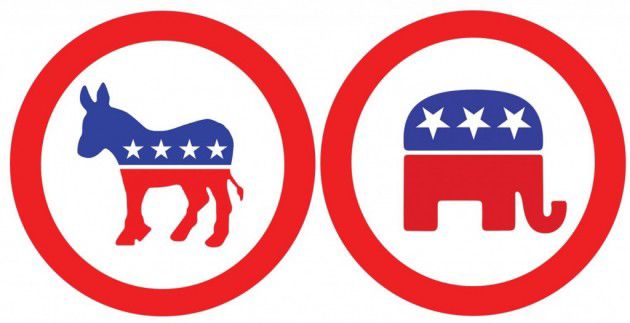2016 Presidential Campaign on Campus
September 20, 2016
“What is American nationalism? What does it mean for us to constitute a country? Who are or ought to be Americans?” These questions, raised by Henry Olsen, the moderator of the on-campus Presidential election conversation, echoed off the walls of Mendel 102 to begin the afternoon dialogue.
In honor of Constitution Day, Friday, Sept. 16, the event was hosted by The Matthew J. Ryan Center for the study of free institutions and the public good.
In order to bring the 2016 Presidential election closer to students, the Center invited three politically conversant figures to campus. Henry Olsen is Senior Fellow at the Ethics and Public Policy Center, a leading Washington D.C. institute which strives to affect public policy.
Ken Masugi, Ph.D.—previously the speechwriter for two Cabinet members as well as Clarence Thomas and author of seven books on American politics—argued the Trump side of the conversation. On the other side of the table, Pennsylvania State Senator Daylin Leach spoke on behalf of the Clinton campaign.
Though neither speaker was directly connected with either campaign, each vigorously sustained a case for his respective candidate.
Masugi, after making a brief reference to Kris Jenkins’ game-winning shot, constructed a Trump argument by explaining he is the “anti administrative state” candidate. “Trump doesn’t spare his fellow Republicans; that’s very crucial,” said Masugi. “Today [we] are ruled by a sort of majority faction, and though Trump doesn’t use this term, this is what I think he sees.” Earmarked books, papers and notebooks covered his desk, and the Trump advocate bolstered his position with several historic works: James Madison’s Majority Faction and Lincoln’s Temperance Address. Brian Satterfield, Ph.D., the acting director of the Ryan Center this semester, stated, “The argument Masugi presented today is one that I don’t think a lot of people have heard.”
Sen. Leach used most of his time attacking the character and policies of Donald Trump. The candidate’s view on torture and immigration, along with his lack of political experience, unspecific policy positions and admiration of strong leaders—Vladimir Putin and Kim Jong-un—were used as points against him. “I think if we elect Donald Trump we will go to a very, very dark place” said Sen. Leach. Additionally he believes he can explain why people agree with Trump, “I think there are a lot of people concerned with
demographic changes that are changing the face of this country, and they are concerned that they will no longer have a voice.” To some, these critiques of Trump seem commonplace while reasons to support Clinton do not. “There wasn’t a pro-Hillary policy argument,” freshman Tim Long said. “I think he had an opportunity to convince younger voters why Hillary is a good candidate, and I think he failed to do that.”
Professor Satterfield explained the goal for the event. “I think the hope is that [students] would hear some good, thoughtful reasons of what is actually at stake in this election,” he said. This objective seems to have been achieved.
Sophomore Gracie Stagliano said it was appealing because, “They were both so smart and renowned political scientists.” She also thought it was intriguing to hear Dr. Masugi’s pro-Trump appeal because it contained such an academic approach—not something one hears every day.
Amid the shouting and notorious rhetoric of this monumental election, students were glad to experience the debate in a well thought out, studious forum; there was a brief question and answer segment after the debate. “We can voice our opinions in respectful manners” freshman Julie Kasunic said. “At the same time, it was also interesting to see how heated people get about this since it’s so polarized.”
The electoral importance of Pennsylvania come November will be a decisive factor in determining the next resident of 1600 Pennsylvania Avenue. “One candidate is on the move and the other is treading water, and this means—given the partisan division of our country—an extremely close race,” Olson said. Therefore, the consequence of each vote can hardly be overstated—particularly in the home-state of the University.


